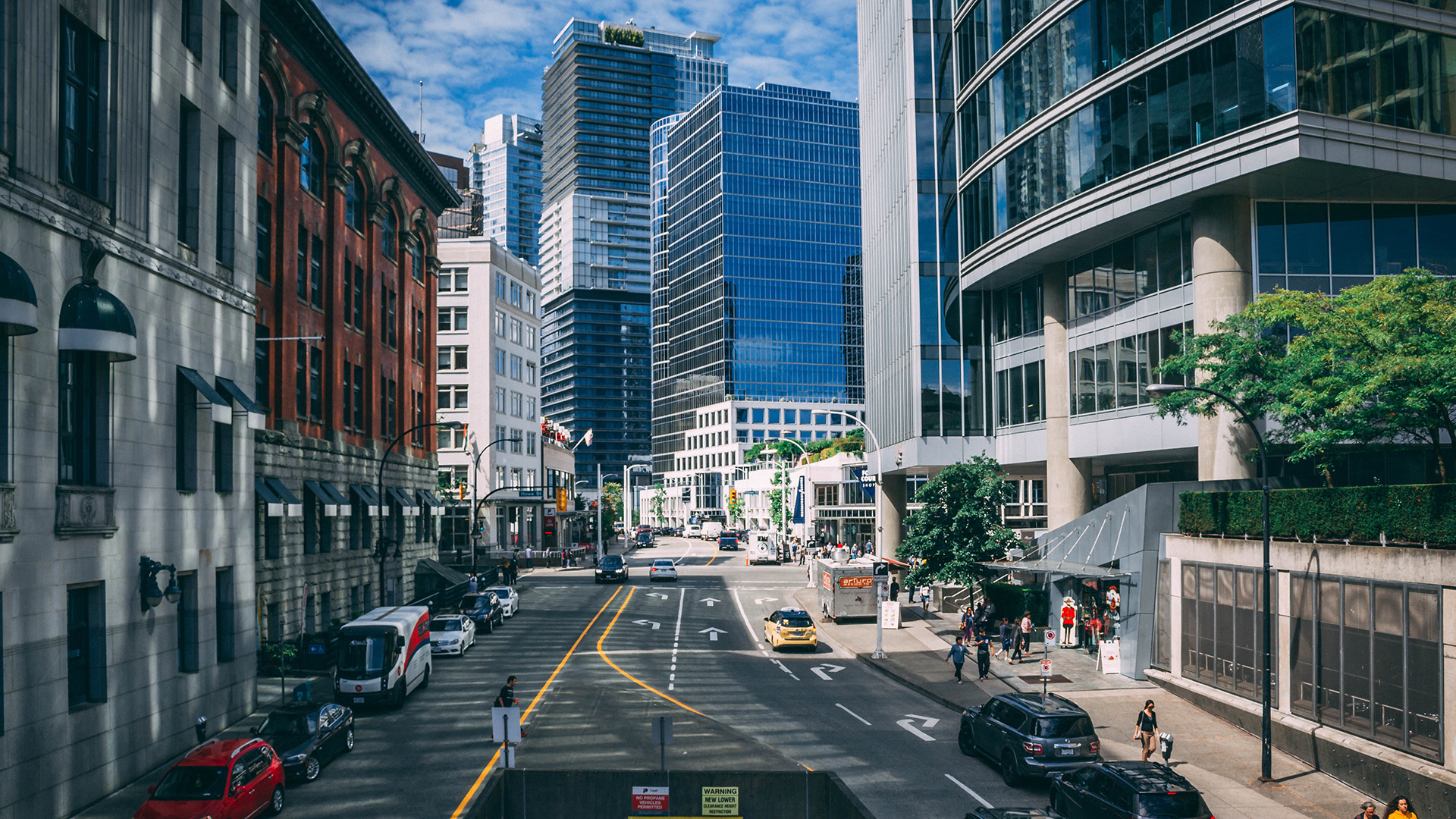Canada’s shift to a low-carbon economy is underway. In order to fight climate change and create a better world, governments all over the planet are working to reduce GHG emissions. Over the next thirty years, overall annual emissions are expected to decline by 50% – 80% below today’s levels. This transition to a low-carbon economy, which is an economy that continues to grow while reducing emissions, will shape and influence every industry.
But transitioning to a low-carbon economy doesn’t mean transitioning to a low-growth economy. In fact, this transition could be the single largest business opportunity the world has ever seen.

Growing the low-carbon future
To be a part of this profitable low-carbon future, every industry on the planet will need to adapt to dramatically improve their sustainability performance. If they don’t, they’ll be at risk of being disrupted by companies whose competitive advantage is an environmental one.
This reality has been a driving force for revolutionary companies and technologies to grow their market share and burst onto the scene. Entirely new industries have sprung up in the last ten years: Energy efficiency, sustainable finance and the circular economy have gone from being textbook concepts to full-blown global industries worth billions of dollars annually. The New Climate Economy has valued sustainable infrastructure alone as a $60 trillion USD investment opportunity for financial markets in the next thirty years. All of those opportunities will be directed towards the inventors and managers of these new solutions.
In simpler terms: this huge opportunity means investment will flow towards the companies and technologies that will occupy these new sectors. Companies who are investing in new ways to use or waste less are about to spend a lot of money on solutions that help them do so. Canadian companies have a chance to be leaders in this clean technology and sustainability services sector that is about to explode.
How businesses can make this happen
There is no single path that a company or business has to take to improve its environmental performance. They have options: They can improve their energy efficiency, they can use greener or cleaner fuels, they can electrify their operations or they can reuse their own waste products. Each company will have their own preference depending on where they’re at, which means there will be demand for a range of green solutions in the market.
To start on any of these paths, governments and customers require three things: new products or services to solve their problems, expertise to help them figure out how to make their solutions work, and effective management to help them realize the value of their investments.
Within each of these paths is an opportunity for a Canadian company to step in and provide new products or services, offer expertise in how to make these services work and a chance to show the world what effectively integrating sustainability into a business model looks like. Canadian companies are capable of adding value throughout the entire supply and operations chain in the clean economy, and leading companies are already showing people how it could and should be done.
How Canadian companies are showing the way forward
When it comes to developing and implementing business models of a sustainable future, Canada is ahead of the curve. Here are a few examples of how Canadian entrepreneurs from across the country who are shaping what our more sustainable tomorrow could look like in different industries:
CARBONCURE
This start-up based out of Dartmouth NS, has developed a clean technology solution to chemically mineralize waste carbon dioxide during the concrete manufacturing process and re-use it to make greener and stronger concrete. This technology is currently being used by concrete producers in North America and Southeast Asia. CarbonCure estimates the effective re-use of carbon dioxide could be a $400 billion market opportunity and reduce GHG emissions by up to 500 megatonnes of annual CO2e emissions over the next decade.
(Photo: CarbonCure)
VERIFORM
This Cambridge ON-based metal fabricator has a claim to fame of achieving carbon-neutral status as of 2015. VeriForm, a metal fabricator, achieved this status by implementing over 100 energy and sustainability initiatives in the last decade. While reducing their GHG emissions by 77.1% since 2006, the company has also expanded their building size and hired 25% more staff to meet growing demand. VeriForm is an example of a company who has adapted their operations to be low-carbon without the radical adoption of clean technologies – their approach has just been smart and consistent action to reduce energy consumption over time.

(Photo: Veriform Inc.)
SUSTANE TECHNOLOGIES
This start-up based out of Halifax NS, has developed a waste conversion technology capable of turning solid waste into high-value synthetic fuels. It also has a handy side-effect of improving municipal recycling rates. Sustane’s vision of a world where we can “practically eliminate landfills” highlights that solutions to grow the circular economy, where waste products are genuinely recycled and reused, are out there right now. This approach has the potential to be a part of a major change in the way businesses produce and consume their goods and resources.

Sustane’s facility in Chester, NS (Photo: Sustane Technologies)
CARBON ENGINEERING
Carbon offset markets offer opportunities for businesses to think not only about solutions that produce less carbon dioxide, but also about how CO2 can be profitably removed from the atmosphere entirely. One cutting-edge company working in Squamish BC has developed a direct-air-capture technology that turns the air we breathe into usable liquid fuels. This air-to-fuels technology has the potential to produce “carbon-neutral gasoline” and create a green fuel with 100X times less land-use than biofuels. The growth potential for cleaner fuels in sectors like marine shipping and aviation is enormous, let alone the potential that taking carbon dioxide out of the atmosphere might have for a larger vision of fighting climate change.

(Photo: Carbon Engineering)
The world needs more Canada

(Photo: NASA)
Canadian companies are changing the way that the world views fighting climate change. Clean technology entrepreneurs and leaders are developing the business models and solutions that the rest of the world will adopt in the coming years as economies advance in their own low-carbon transitions. Canada is quickly becoming a world leader in sustainability, and its companies have the potential to attract the investment into solutions that will reduce emissions and create jobs if it continues on its current path.
Realizing this vision is only possible through smart leadership, support for entrepreneurs and by helping the Canadian corporations developing the real solutions to today’s problems. It’s time for Canada to support “climate wealth creation” and in the process, make the world a better place.
John McNally is a clean energy and sustainability professional based in Ottawa. He’s passionate about finding real solutions to address today’s social, economic and environmental issues. You can read more of his work at misreportedandmisremembered.wordpress.com
Want to connect with John or discuss your new cleantech startup with an R&G expert? Get in touch!



